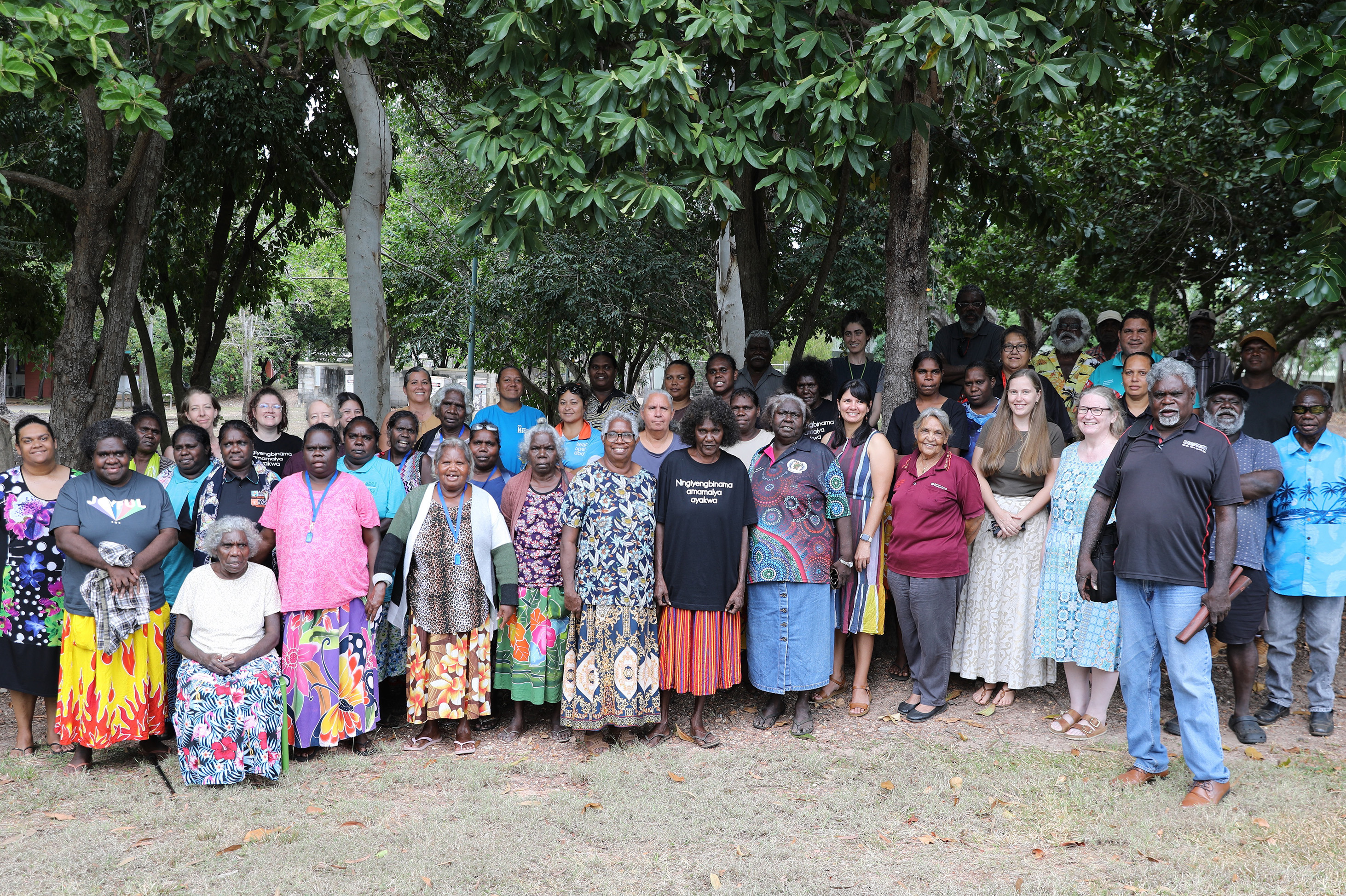

Coinciding with the UNESCO International Decade of Indigenous Languages, 2022-2032, Aboriginal language advocates from across the Top End gathered in Darwin recently for the Top End Languages Forum.
The two-day forum, coorganised by Batchelor Institute, Charles Darwin University (CDU) Northern Institute, and the University of Melbourne, was held at CDU campus on 6-7 June 2022. It brought together over 65 delegates from more than ten Aboriginal communities of the Top End region to discuss what they want for their languages by the end of the decade.
The meeting was held entirely for and by Aboriginal community representatives, facilitated by Rarrtjiwuy Melanie Herdman. At least a dozen Aboriginal languages are still spoken fluently in the Top End, and this was reflected in the variety of languages used in the meeting. Keynote and closing addresses were delivered by Mr Yiŋiya Mark Guyula, Member for Mulka, and a panel discussion was organised by interpreters from the Aboriginal Interpreter Service. In addition to this, presentations were given by First Nations leaders and language champions from a number of Top End communities.
Delegates at the meeting spoke of the central importance of language on every level of their lives, from education and community development through to spirituality, wellbeing and sovereignty. Over two days of passionate discussion and sharing of stories, delegates articulated a shared vision for the maintenance and strengthening of Aboriginal languages in the Top End. There was a particular focus on issues of bilingual education, community-based language practices, building connections between communities, and raising the profile of Aboriginal languages more widely.
Batchelor Institute’s Mia Stanford presented at the forum, talking about her experience working with her Kungarakan language. Ms Stanford reflected that the forum highlighted the need and sense of urgency to develop language programs and resources.
“This forum was so important for participants to come together to build cultural resilience, network and tap into the professionals and avenues to create language repositories and expertise to champion language leadership,” she said, adding that she was looking forward to future collaborations and development opportunities.
Batchelor Institute’s Dr Robyn Ober, who also participated in the forum, described it as an inspiring event, where everybody was engaged and real issues about language, identity and connection were passionately discussed.
“It was run by our mob – the facilitators, the presenters, the guest speakers,” said Dr Ober. “It was very inspirational, and makes such a difference when we run the events.”
An initial statement of shared goals for 2032 was drafted at the forum, and this will now be discussed within a wider network of community representatives, to be finalised in the coming months. An accompanying video will also be released.
The forum was dedicated to the late Dr Cathy Bow, a highly respected linguist who was a key figure in language work in the NT and was central to the organisation of the forum, prior to her sudden passing in 2021.
